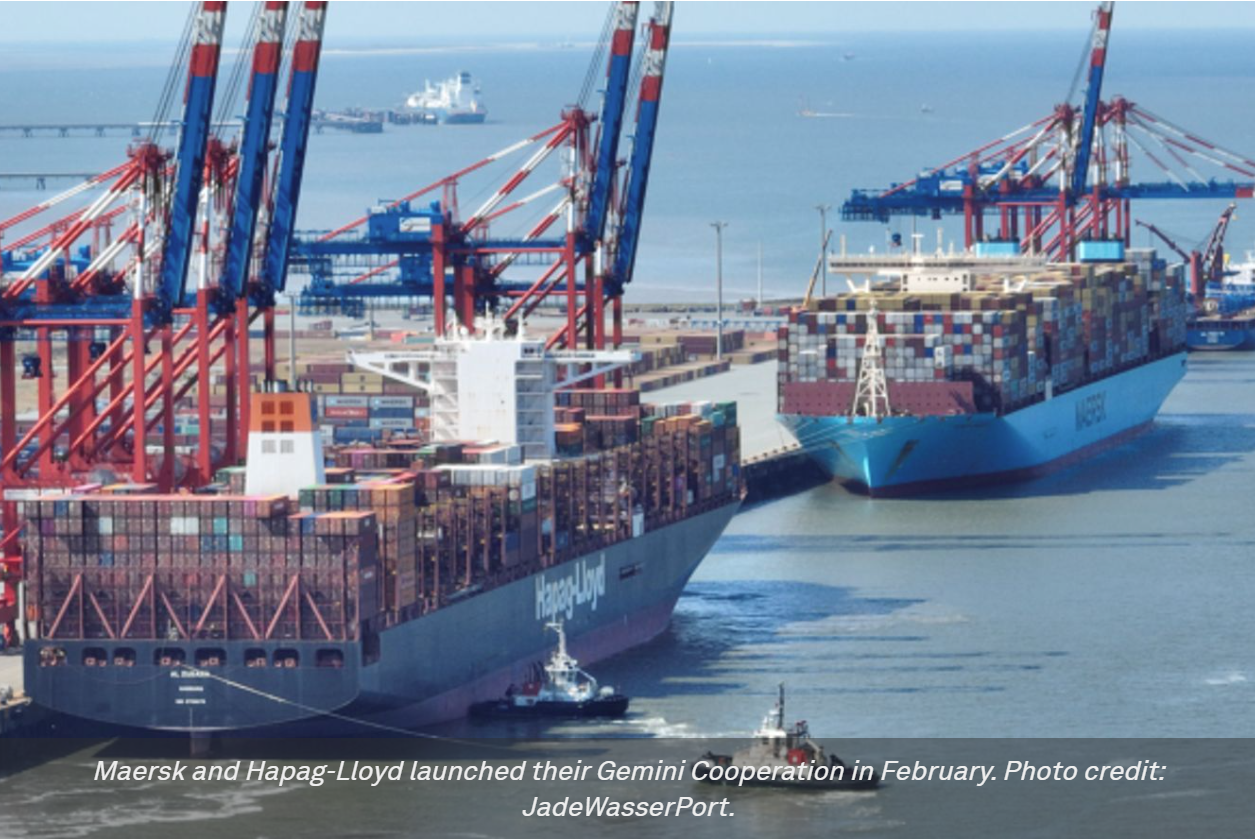
MUNICH — The establishment of Gemini Cooperation's hub in Wilhelmshaven has been“a game changer”for the north German port, with container volume rising rapidly since the carrier alliance was launched in February.
A record 300,000 TEUs crossed the port's wharves in the first quarter, and with the Gemini business of partners Maersk and Hapag-Lloyd being directed through Wilhelmshaven, the volume will continue to grow rapidly through the year, according to Marc-Oliver Hauswald, CEO of JadeWeserPort Wilhelmshaven.
“In Germany, Gemini has two hubs, one in Wilhelmshaven and the other in Bremerhaven, so the biggest vessels in their network are now coming to these ports,”Hauswald told the Journal of Commerce at the Transport Logistic exhibition in Munich this week.“This is a game changer for us.”
JadeWeserPort is responsible for the marketing and management of the industrial and logistics areas in Wilhelmshaven.
“If you multiply first quarter volume by four quarters, you get to 1.2 million TEUs, and with the first Gemini vessel starting in the middle of February, we are expecting to handle over 1 million TEUs,” Hauswald said.
The port handled 840,000 TEUs in 2024, and although Hauswald said it was“not very much,”he noted it was a record annual result for the gateway.
Wilhelmshaven is Germany's only deepwater container port. Hapag-Lloyd has held a 30% stake in the container terminal there and a 50% stake in its rail terminal since 2022, with the remaining shares held by Hamburg-based Eurogate, the operator of the container terminal.
Another driver of volume for Wilhelmshaven is the China-Europe Express service that provides a direct service with Ningbo routed via the Suez Canal. It was launched by Kawa Shipping in January and offers a 26-day transit time.
Kawa started with one 5,000-TEU vessel in January, adding a second last week; a third is scheduled to join the fleet by the end of the year.
“The capacity of the vessels are not high compared to the 24,000-TEU ships on Asia-Europe, but even when the big ships call, they have container exchanges similar to 5,000 TEUs, so it is comparable,” Hauswald said.
Automation plans
Automation features prominently in the plans for Wilhelmshaven. The existing port was designed for a capacity of 2.7 million TEUs, but under Eurogate's automation plans, the handling capacity will increase to 4.5 million TEUs.
“In the future, maybe in five or 10 years, the major shipping lines will only go to the ports that have automated systems,”Hauswald said.“In Asia, you can see more and more ports becoming automated because it's a guarantee of fast and efficient operations at a lower cost.”

